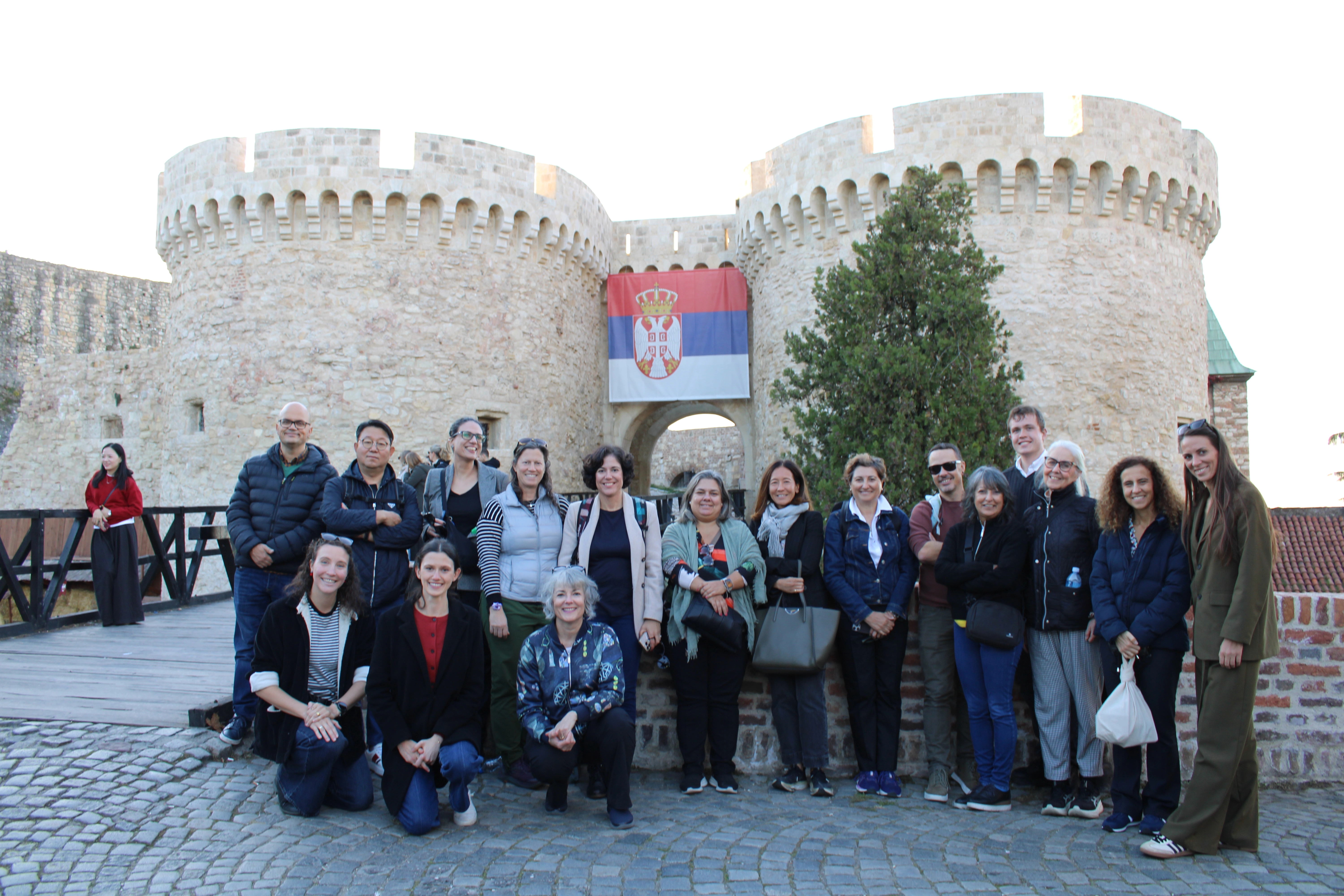Access

- Submit your institution’s Sharing Information on Progress (SIP) Report
- Access SIP reporting across institutions
Access

Access


The PRME Champions are a select group of institutions that drive systemic change in management education, providing thought and action leadership on responsible management in the context of the UN Sustainable Development Goals (SDGs).
In Belgrade, Serbia, over three days, PRME Champions, both in person and online, came together for dialogue, collaboration, and forward-looking strategy. This gathering set the stage for the next cohort to build on the collective impact of the past two years. Hosted by the University of Belgrade’s Faculty of Organizational Sciences, the meeting coincided with the 12th Responsible Management Education Research (RMER) Conference, which united researchers, educators, business leaders, innovators, policymakers, and students under the theme: “Rethinking Growth and Exploring New Possibilities for a Regenerative World.”
More than 40 PRME Champion institutions participated in sessions covering AI in education, the SDG 4 Manifesto, PRME Commons, and the future of Champion subgroups. The October meeting focused on reviewing the progress of Champion-led projects and exploring new avenues for collaboration to amplify impact across the global PRME community.
Reimagining Higher Education in the Age of AI, Impact, and Policy
The opening roundtable of the PRME Champions meeting focused on Impact, Artificial Intelligence, and Public Policy, setting the tone for three days of strategic reflection and planning. Participants explored how higher education institutions are adapting to technological change while maintaining ethical, inclusive, and responsible approaches to teaching, research, and assessment.
Champions emphasized the need for balanced and ethical approaches to AI integration that promote transparency, literacy, and shared responsibility among faculty and students. Many institutions are developing AI literacy policies, pedagogical guides, and expectations for responsible use in both teaching and research. Assessment models are evolving to prioritize authentic learning and creativity rather than an overreliance on written assignments.
Professor Chris Choi of the University of Guelph noted, “Some of our traditional assignments just are not trustworthy anymore. We are experimenting with more verbal presentations because they are harder to fake. But AI is also widening the gap between students who can afford advanced tools and those who cannot. The real question is how students and educators can evolve alongside rapidly changing AI capabilities.”
Equity, inclusion, and academic integrity remained central themes throughout the discussion. Participants acknowledged that while AI can support research through literature synthesis and data analysis, it also requires safeguards for fairness and transparency in the classroom.
Reflecting on future directions, Dr. Petros Vourvachis of Loughborough Business School shared, “I want to work more closely with students and better understand how to strengthen engagement,” underscoring that the future of responsible management education depends as much on human connection as on technological advancement.
Building Momentum for the SDG 4 Manifesto
As leaders in responsible management education, PRME Champions are advancing action on the UN Sustainable Development Goals, with SDG 4 (Quality Education) at the core. Following discussions in Lisbon in 2023, the group drafted the PRME Champions Manifesto on SDG 4, calling on business schools to reaffirm their commitment to quality education through research, teaching, and advocacy.
In Belgrade, Dr. Rumina Dhalla of the University of Guelph led a session on positioning the Manifesto as a living commitment. Champions debated whether it should be signed individually ("I") or institutionally ("We"), ultimately supporting a dual approach that balances personal responsibility with organizational accountability. Implementation ideas included launching a public campaign with LinkedIn badging, creating a sign-up tracker, and embedding the Manifesto into PRME onboarding and training.
Professor Swati Nagpal of La Trobe Business School emphasized the Manifesto's potential to strengthen institutional understanding of PRME. "It shouldn't be a Champions-only effort, it's for the wider PRME community. This can become a powerful communication tool about what PRME is, especially for new faculty. Aligning it with SIP reporting would help integrate it into schools' existing systems, while also bringing more visibility to SDG 4, which isn't yet a strong focus in current reports."
Strengthening PRME Commons and Reporting
In a hybrid workshop, the PRME Secretariat shared updates on the PRME Commons platform and gathered feedback on improving engagement and reporting. Institutions highlighted ongoing challenges in data collection and called for clearer guidance on permissions, privacy, and evidence-sharing.
Suggestions included introducing visual mapping tools to track research collaborations, forming dedicated reporting teams to enhance faculty ownership, and aligning PRME reporting with accreditation standards related to societal impact. The discussion also emphasized strengthening connections between academia and business through local partnerships with UN Global Compact Country Networks. Updates to SIP and Commons reporting will be shared publicly in November.
The conversation continued during the RMER Conference session "Reporting with Purpose? Preliminary findings from a study of the first year of PRME SIP 2.0," presented by Dr. Petros Vourvachis of Loughborough Business School and Dr. Margaret McKee of Saint Mary's University.
Charting the Future of Subgroup Collaboration
Looking ahead, Champions expressed enthusiasm for deepening collaboration and co-creating new outputs in the next two-year cycle, from joint research on AI, climate, and inequality to expanding student and faculty engagement across institutions and regions.
Participants reflected on their personal priorities for the coming cycle. Gustavo A. Yepes Lopez of Universidad Externado de Colombia reflected, “I’ve been a PRME Champion since the beginning, and now it’s clear what we need to do. Our projects are much more defined than they were in the past.”
As the PRME Champions community prepares for the next cycle, one message from Belgrade was clear: collaboration and collective action remain at the heart of transforming management education for a more equitable and sustainable future.